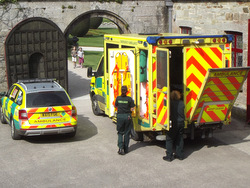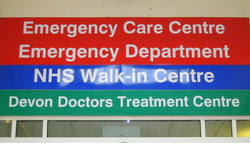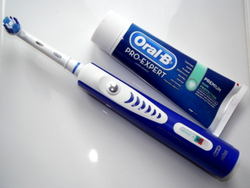 Authors of a large American pilot study have concluded acupuncture is a feasible and beneficial, non-pharmacological option for treating pain in the emergency department. The researchers’ aim was to determine the feasibility of employing an acupuncturist in an urban emergency department, to provide an acute pain management option.
Authors of a large American pilot study have concluded acupuncture is a feasible and beneficial, non-pharmacological option for treating pain in the emergency department. The researchers’ aim was to determine the feasibility of employing an acupuncturist in an urban emergency department, to provide an acute pain management option.
Of 706 patients with acute pain, 379 agreed to try acupuncture in the emergency department of a Milwaukee hospital. Their mean pain scores decreased significantly (from 6.5 to 3.4), as did their levels of stress, anxiety and nausea. The treatment was well received.
One author reported, “We believe this research is very important because America is currently in the throes of a pain management and opioid crisis. What contributed to this crisis was a belief that new technologies, surgical procedures, and the liberal use of opioids would be the answers to controlling human pain. As we now know, these strategies have not proven efficacious in mitigating pain, suffering, and disability to the extent the public was led to believe.”
(ED Acupuncture: Feasibility, Acceptability, and Impact on Pain. American Pain Society Annual Meeting, April 2019.)

 Research commissioned by the US State of Vermont shows that acupuncture is effective for chronic pain and offers a wide array of other benefits, for patients on low incomes and treated under the government-funded Medicaid scheme. Previous studies have shown that this population is hampered in its access to non-pharmacological treatments, by lack of health insurance. In a pragmatic randomised trial, Medicaid patients with chronic pain were offered up to 12 acupuncture sessions over a 60 day period. This resulted in 156 patients (111 women & 45 men) receiving an average 8.2 treatments.
Research commissioned by the US State of Vermont shows that acupuncture is effective for chronic pain and offers a wide array of other benefits, for patients on low incomes and treated under the government-funded Medicaid scheme. Previous studies have shown that this population is hampered in its access to non-pharmacological treatments, by lack of health insurance. In a pragmatic randomised trial, Medicaid patients with chronic pain were offered up to 12 acupuncture sessions over a 60 day period. This resulted in 156 patients (111 women & 45 men) receiving an average 8.2 treatments.  A systematic review by Australian authors has shown the effectiveness of ear acupuncture delivered for the purpose of pain relief in a hospital emergency department setting. The treatment was helpful when given either on its own, or as an adjunct to other pain relief measures. Six randomised trials and two observational studies, involving a total of 458 patients, were included in the analysis, which suggested that ear acupuncture can provide clinically meaningful analgesia for acute pain conditions in the emergency department. The treatment was also assessed to have other potential benefits, such as low risk and cost, reasonable application time, improved patient satisfaction, and non-interference with other necessary procedures.
A systematic review by Australian authors has shown the effectiveness of ear acupuncture delivered for the purpose of pain relief in a hospital emergency department setting. The treatment was helpful when given either on its own, or as an adjunct to other pain relief measures. Six randomised trials and two observational studies, involving a total of 458 patients, were included in the analysis, which suggested that ear acupuncture can provide clinically meaningful analgesia for acute pain conditions in the emergency department. The treatment was also assessed to have other potential benefits, such as low risk and cost, reasonable application time, improved patient satisfaction, and non-interference with other necessary procedures.  Researchers in the Medical School of the University of Sao Paulo, looking at the use of acupuncture for trigeminal neuralgia, have found that it can reduce levels of pain and medication use. In the longitudinal case-control study, they compared 30 healthy subjects with 60 patients diagnosed with idiopathic trigeminal neuralgia. The latter group were randomly assigned to receive either true acupuncture, sham acupuncture or treatment with the drug carbamazepine. The true acupuncture group received ten weekly sessions. The sham group received the same, except that they were only needled superficially at all acupuncture points.
Researchers in the Medical School of the University of Sao Paulo, looking at the use of acupuncture for trigeminal neuralgia, have found that it can reduce levels of pain and medication use. In the longitudinal case-control study, they compared 30 healthy subjects with 60 patients diagnosed with idiopathic trigeminal neuralgia. The latter group were randomly assigned to receive either true acupuncture, sham acupuncture or treatment with the drug carbamazepine. The true acupuncture group received ten weekly sessions. The sham group received the same, except that they were only needled superficially at all acupuncture points. 